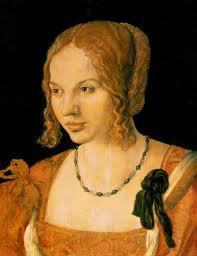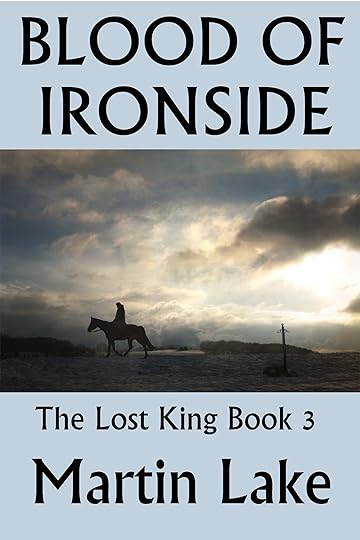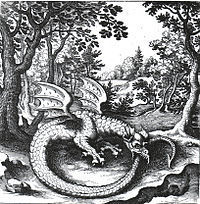Martin Lake's Blog, page 9
October 21, 2013
Author Interviews
You can find my series of talks with authors by searching for their names using the little Sherlock Holmes magnifying glass on the top right of the blog or by clicking on author interviews at the bottom of this post.
Ben Kane, Carol McGrath, Colin Falconer, David Gaughran, Angus Donald, Douglas Jackson, Elizabeth Chadwick, Giles Kristian, Gordon Doherty, Harvey Black, James Aitchieson, James Wilde, Justin Hill, Lynn Shepherd, Manda Scott, N. Gemini Sasson, Paul Dorset, Prue Batten, Robyn Young, Simon Toyne, SJA Turney, Ty Johnston.
You can find interviews of me on the blogs of Gordon Doherty, Ty Johnston and Paul Dorset.


October 19, 2013
May Day. Alice Petherton #SampleSunday #Histnov
Here is a second extract from my new novel. It concerns the adventures of a young maid of honour at the court of Henry VIII.
I woke early in the morning to see the sun kissing the hills to the east. I hugged myself. It was May Day and great festivities were planned at the court. It was also my nineteenth birthday. I loved May Day and I adored my birthday.
I went into the Maids of Honours’ dining room. My friends Margaret Wicks, Joan Bray and Mary Zouche were waiting for me by the door. They each bore a gift, wrapped in green cloth.
I unwrapped Joan’s first. It was a necklace with a little locket. I opened it to see a tiny miniature of Jane Seymour. Tiny though the image was it seemed that she was glaring reproachfully at me.
‘That’s wonderful,’ I said, making haste to wrap it in the cloth once again.
‘You must wear it,’ Joan said wresting the necklace from my grasp. She looped it over my neck and clamped it shut, stepping back to examine her handiwork.
‘Now your gift, Mary,’ said Margaret.
Mary handed me her gift, her face unable to keep the excitement from her face. It was a recorder of exquisite design.
‘It’s made of rosewood,’ Mary said. ‘You said you wanted to learn how to play. I shall teach you.’
It was a beautiful looking instrument, polished smooth and glistening like the sun.
‘Smell it,’ Mary said.
I frowned in surprise but put the recorder to my nose. It had the sweetest fragrance, very like a rose.
‘It’s lovely,’ I said in surprise.
‘And it’s ten years old or more,’ Mary said. ‘Rosewood keeps its bloom and scent.’
I embraced Mary and gave her a kiss upon the cheek. ‘I can’t wait for my first lesson,’ I said. Mary was a wonderful musician, the finest of all the maids and ladies of the court. I blew a little note on the recorder and giggled. Mary clapped her hands with pleasure.
I turned to Margaret who gave me a winning smile. My heart beat faster at this and I wondered what gift she had chosen for me. Countless ideas flashed through my mind, but I stilled them and awaited what she was to give me with gleeful anticipation.
She held out her gift towards me; it was larger than the ones my other friends had given me and felt soft. I speedily unwrapped it and took a look.
It was an embroidery sampler.
‘Oh,’ I said. I could not think of anything else to say.
‘Practice makes perfect,’ Margaret said.
I nodded. ‘It’s lovely,’ I said at last. ‘I shall treasure it.’
‘It’s not to be treasured, it’s to be used,’ Margaret said, patting me on the arm, as if I were a little dog.
We breakfasted quickly, so keen were we to be out of doors and enjoying the celebrations. I hurried to the chamber and put away my gifts. I wondered for a moment what to do with Joan’s locket of Jane Seymour. I knew it would be sensible to wear it but I could not bear to think of her hanging round my neck, peering at everything I did on my very own day. So I pulled it off and flung it on a table before hurrying down to join my friends.
Joan saw that I was not wearing my locket and was about to speak when Margaret touched her on the arm to stop her. I was glad of that. I had no wish to explain myself or excuse myself in any manner today.
It was a beautiful morning. The sun was beaming from a sky of cornflower blue, a sky dotted with clouds as soft and white as lambs. A gentle breeze danced in trees already blushing with the green shoots of spring.
The lawns stretching from the palace to the Thames were filled with all manner of delights. There were scores of little booths and stalls, tables readied for the feast, outdoor ovens with cooks already attending, spits of various sizes loaded up with pork and boar and ox. Most of the court appeared to be milling around and the rest were hurrying out from the palace.
A stage had been raised close to the river and a small orchestra sat upon it playing light melodies. On the far edge of the lawn were jugglers, acrobats and even clowns for the children.
A large Maypole had been erected in the middle of the lawn. I gasped when I saw it for I had never seen a Maypole so tall and handsome. It was decorated with garlands, flags and flowers. Little purses hung from it, filled no doubt with coins and charms.
‘Gifts from King Henry and Queen Jane,’ explained Margaret.
I wanted to say, I guessed this, but thought better of it. Margaret liked to explain things to me, as was her right, having been at court much longer than me.
*********************
I have completed the first draft and it’s resting now. So am, come to that. I’m planning to work on the draft in December with a view to publishing it in the new year.
My subscriber list gives you advance notice of my new releases and exclusive access to free stories.
It’s simple to sign up….. Just right click on this link: http://eepurl.com/DTnhb and it will take you to a sign up form.
Alternatively, email me on martinlake dot 14 at gmail dot com and I’ll email you back with a link to sign up. (Sorry about having to code the email address but it helps stop robots, cybermen and Daleks.)
Related articles
Alice Petherton #SampleSunday #HistNov (martinlakewriting.wordpress.com)


October 18, 2013
Inspiration
Archimedes had his Eureka moment in a bath and Sir Isaac Newton when musing in an orchard. Albert Einstein had his when sitting in a railway carriage.  He saw another train leave and wondered which was actually moving. How often have you or I done this? And yet we never formulated the Theory of Relativity.
He saw another train leave and wondered which was actually moving. How often have you or I done this? And yet we never formulated the Theory of Relativity.
I sometimes wonder about the things which inspired writers. Did Shakespeare meet a man from Denmark while walking with his son, Hamnet? Did Dickens get his pocket picked and think of the Artful Dodger? Did Herman Melville see a goldfish in a bowl and conceive of Moby-Dick?
Whatever the factor, all writers are inspired to write by something. It may have been something grand. It may have been the sudden epiphany moment which James Joyce writes about. It may have been small, like when I watched Ridley Scott’s film ‘Kingdom of Heaven.’ I shook my head at the scene when Balian of Ibelin knighted commoners to help defend Jerusalem against Saladin. What a typical piece of Hollywood fiction, I thought. As soon as I got home I read about the siege and was astonished to see that Balian actually took this desperate measure. He did the unthinkable and knighted ordinary men.
And then came my moment of inspiration. I wondered what would happen to those ordinary men after their services were no longer required. What would happen to people who were elevated above their normal station in life? This little question led to my novel, ‘Outcasts.’
So where does inspiration come from? The word is derived from the Latin for breathe upon and suggests that someone is breathing something mystical and otherworldly into your lungs. 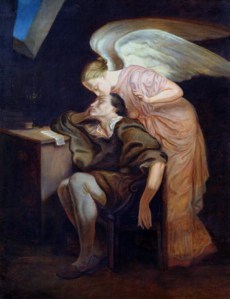
The concept is intimately connected with that of the Muse. There were any number of Muses in ancient time but all seemed to occupy the place between the gods and humanity. They could be said to be the bridge between the sacred and the mundane. Not a bad metaphor for when we’re beginning to do something creative.
Inspiration, then, is an idea from nowhere, the little question in the back of the mind, the rumble of thunder on the horizon. As we get older we get really good at ignoring these insights. If we are wiser, or wish to be more creative, we try to view them in a child-like manner. We seek to capture them as if they are daffodil seeds floating on the breeze. Capture them but never squeeze too hard. They are easily squashed.
It seems to me that inspiration strikes most often when we let our guard down, when we’re open to the world, to the casual idea, the overheard remark. The best ideas sneak up on us in a playful manner and if we don’t pay attention to them they are likely to sulk and run away.
Once I have my inspiration I usually run with it, lying down and staring at the sky or ceiling. More often than not it sticks around to play and together we conjure up further ideas and insights. I fall into a rather dreamy state and lots of ideas rush at each other, colliding, interacting and suggesting new combinations. I find it best to always have a notebook nearby for it is in the nature of inspiration to be as light as a cloud, ephemeral and easily forgotten.
Sometimes, however, inspiration needs a little prod. In the next post I’ll talk about how to encourage your mind to be creative and how to nurture inspiration.
And what about you? I’d love to hear from you about inspiration and how it strikes you.
Related articles
Seven Stages of Writing (martinlakewriting.wordpress.com)


October 14, 2013
Eyam, Plague Village of Derbyshire.
I am just about to start a short online course called Plagues, Witches and War. The plague part refers to Geraldine Brooke’s novel: ‘A Year of Wonders’ which concerns the year 1665-1666 in which the people of the tiny Derbyshire village of Eyam were struck by an attack of the Bubonic Plague, brought there by bundles of cloth from London. The year in which the people of the village agreed to shut themselves off from the rest of the world to prevent the infection spreading. The year in which they decided to let the plague run its course in their own village.
I moved from London to Derbyshire when I was nine years old. It was like going back in time. This feeling was strengthened by the many well-dressings which took place in little villages, well-dressings which commemorated the life-giving properties of ancient springs. They were festive occasion when the wells were decorated with pictures made of flower petals; a time of pageant, dressing-up and make-shift kitchens where sheep or pigs were roasted.
One of the places which had a well-dressing was the village of Eyam. It was situated in the centre of the county, in the middle of rugged and desolate country. The locals pronounced the name of their village Eeem with a final sound which sounded sharp, cut-off and mind your own business. We went there every year for the well-dressing and I became haunted by the memories of it.
When I was sixteen I became friends with a lad from Eyam and began to know the village much better. Every August they held their well-dressing. Brass bands would play, sheep-roasts were held and the all-important wells were dressed. I helped with the dressing a couple of times. I can still recall pressing the petals from the fresh cut flowers into the cold, wet clay. It was a delicate task. If you were too forceful the petal would become damaged and filthy. Too gentle and you ran the risk of the petal coming loose from the clay.
I always found Eyam a melancholy place. Whatever the season it felt like autumn. Not the mellow, sunny autumn of September but the bleak, forlorn and dismal autumn of November. A chill wind blew along the wide lanes, a dank mist clung about the little cottages. The only birds you heard were crows which built their nests in the high trees around the village and flapped their shadows across the village.
Sometimes I parked my car at the far end of the village from my friend’s house and had to walk the length of the village to return to it. A couple of times as I trudged alone in the twilight I felt that I was being watched. To my imagination the watching eyes seemed cold and reproachful, perhaps a little yearning, perhaps not.
Yes, Eyam is a melancholy place. And most melancholy of all are the graves of the Hancock family, a place I found myself drawn to time and time again.
You leave the village and head a little north. The high moors are to your right, and the wind blows stiff and cold from them. A little way along you come to a stone wall.
You climb up the wall and see another wall in the middle of the field, a circular wall, looking much like an enclosed garden. You walk across the field and look over.
It is a place containing seven grave-stones. This is the burial place of the Hancock family. One after the other they fell victim to the plague. After little more than a week only the mother Elizabeth Hancock was left alive. Single-handed she buried her husband and six children in a plot which had became a graveyard.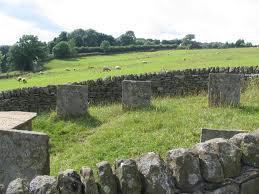
As I gazed at the graves a chill would run through me; and admiration and disbelief. I cannot begin to imagine the courage of the people of Eyam, the courage of the Hancock family. Most acts of courage are done in the heat of passion, out of love or hatred. Their courage was considered, stalwart and grim. It was the daily courage of waking up not knowing who amongst your friends or family might be stricken by the plague. Not knowing if you would wake with the tell-tale signs of the disease upon your body. The people of Eyam faced their doom over weeks, months, a dreadful, heroic year.
The villagers faced death with implacable resolution. The plague did not spread.
October 12, 2013
Alice Petherton #SampleSunday #HistNov
I’ve just completed the first draft of my new novel set in the time of Henry VIII of England. I plan to publish it in the New Year. Here’s a sample.
Margaret Wicks was by far the prettiest of the maids of honour. I heard tell that she was twenty five years old although she never admitted her age to anyone. She was a particular favourite of Queen Jane. She had beautiful red hair with a lustre which glowed like gold. Her cheek-bones were high and distinct which made her look a little like a cat. Her lips were pink and full and they invariably wore a smile. She was said to have the prettiest nose in court although I cannot recall who told me that. I think it may, in fact, have been her. She was a special person and I was glad to be her friend.
Her closest friend was Joan Bray. I often wondered that they were so close for where Margaret was pretty, Joan was plain. I could not call her ugly, that would be unfair. But plain suited her well. She had a square face with deep-set eyes and tiny little mouth. Where Margaret tripped along the corridors of Hampton Court Palace, Joan trudged. I do not know how old she was. She might have been thirty, she might have been forty or even older.
‘Alice, where have you been?’ Margaret asked as I hurried into the maid’s sitting room.
‘I couldn’t find my bonnet,’ I said. ‘It had fallen behind the chair.’
‘It looks it,’ Margaret said. She reached up and pushed the bonnet more securely upon my head. ‘In fact it looks as though you’ve been using it as a chair.’
I smiled at her jest.
‘Her hair escapes the bonnet,’ said Joan Bray.
Margaret stared at my head. ‘You’re right, Joan. It would never do to have Alice’s hair all bedraggled across her head.’
She tucked the errant locks firmly back beneath the bonnet. I sighed to myself. I hated that my hair was forced into trammels. Margaret, I noticed, always left a small fringe of her hair showing. But it was a lovely colour so I could see why she did this. Joan was all forehead.
Margaret grasped my shoulders and pushed me back from her so that she could examine me more carefully. ‘You’ll do,’ she said brightly. ‘Come, we must not be late.’
I followed Margaret and Joan along the corridor. I was grateful they had waited for me, although I could see that Joan was fretful at the delay.
Margaret, of course, seemed less concerned. She did not dawdle but nor did she hurry. I smiled quietly to myself, smug that she had chosen to befriend me.
The Queen’s chamber was crowded when we arrived. Jane Seymour sat close to the window, working, as always, at her embroidery. She was said to be the finest needlewoman at court, and not merely by those who were sycophantic towards her. I admired her work and knew that no matter how hard I tried I would never produce anything close to its quality.
This was partly because I loathed working with needle and thread. I much preferred to spend my hours in reading, or even writing. But Queen Jane liked to do neither and so all her ladies and maids must, perforce, bend themselves and their minds to the constant poke and stitch of needlework. Sometimes, at the end of the day, my fingers looked like pin-cushions.
Jane gave a frosty glance as I entered the room. Then she gave a little smile when she saw Margaret enter the room behind me. Her fingers signalled for her and Joan to approach. I wondered whether to follow but thought better of it. Susan Dunster and Mary Zouche sat close to the door and glanced up at me. I slipped to the empty chair beside them and pulled out my needlework.
‘You’re late, Alice Petherton,’ Susan whispered. ‘Tut tut, that will never do.’
I did not answer for my face had blushed scarlet. Susan laughed quietly, as if to herself. Mary smiled gently and continued with her sewing.
The room fell silent except for the drawing of thread through fabric. You would never have credited that such a tiny act could produce such a volume of noise. It rasped through my brain, if truth were told. The more I listened the more it seemed like the sharpening of a blade.
Every push and draw of my needle felt like the days of my life running away from me. I shook my head to concentrate. It was so easy to go awry, so easy to make a mistake which would take long hours to unpick.
My subscriber list gives you advance notice of my new releases and exclusive access to free stories.
It’s simple to sign up….. Just right click on this link: http://eepurl.com/DTnhb and it will take you to a sign up form.
Alternatively, email me on martinlake dot 14 at gmail dot com and I’ll email you back with a link to sign up. (Sorry about having to code the email address but it helps stop robots, cybermen and Daleks.)


October 6, 2013
Blood of Ironside Part 8 #SampleSunday #HistNov
I went back to my quarters. Anna was waiting for me. She scanned my face anxiously.
‘What did your sister say about me?’ she asked.
‘I decided not to tell her about you yet.’
Silence filled the room, a silence which I did not want to be the first to break.
Anna shook her head. ‘I don’t understand.’
‘The time was not right,’ I answered. ‘Malcolm wanted to hear about the troubles in England and I wanted to work out what he thought about it all.’
She frowned before nodding cautiously. ‘I understand. I think.’
I held her face in my hands and looked into her eyes. ‘Don’t worry. There’s nothing to worry about.’
She sighed and tried to turn her face away. ‘It’s not because you’re ashamed of me?’ she said. Her voice was distant and small. ‘Not because of what I was when you first saw me?’
‘I will never be ashamed of you. Don’t ever think that. Not ever.’
Anna bit her lip. Tears sprang to her eyes.
‘And the others won’t speak of it?’ she asked. ‘I couldn’t bear if it they were to. Godwin and Athelstan? Merleswein?’
‘Never. I promise.’
My heart ached to see her like this. I rarely recalled the first day I had seen her. I knew she could never forget it herself, of course. Stupidly I did not realise how much she feared that people might find out about her past.
I kissed her on the lips.
‘I’m not the Earthworm,’ she whispered.
‘No,’ I said. ‘You are my love. You are my life.’
*****
‘Blood of Ironside’ is the third novel in The Lost King series. All the books in the series are available on Kindle, Smashwords, Kobo, Nook, Sony Reader Apple, and other devices. Please check out the individual retailer web-sites.
You can buy it on Kindle for $3.08, £1.97 or €2.68. You can buy by clicking on the links below, by clicking on the covers to the right (for the UK) or through Amazon outlets in your own country.
Amazon US link is: http://t.co/X4nLHHXnQX
Amazon UK link is: http://t.co/KRNth65wNY
My other novels, ‘Outcasts’ and ‘Artful’ are also available as e-books as are several collections of short stories.
My subscriber list gives you advance notice of my new releases and exclusive access to free stories.
If you’d like to sign up to my subscriber list please look for the link on the sidebar to the right which says Newletter. It’s a little below the pictures of my books. It’s simple to sign up…..
Right click on the URL and open it in a new web page. This will take you straight to the sign up page.
************************
Related articles
The Harrying of the North #SampleSunday #HistNov Blood of Ironside Part 7 (martinlakewriting.wordpress.com)


October 5, 2013
Girl on a Bus.
When I was fourteen or fifteen I saw a girl staring out of a
bus window. She was four or five years older than me, very pretty with long
dark hair. But it was not her looks which attracted my attention. It was the
desolation in her face. She looked lost in a gulf of despair, hopeless and
helpless. I was transfixed by her.
What could make such a lovely young woman look like that,
feel like that? I wondered what it was like to be her, and then I wondered what it was like to be any other person, to see
through their eyes, move with their body, think with their thoughts, wake with
their dreams. I have been wondering it ever since.
The girl became the female lead in my first, long-gone
novel.
When I’ve discussed this puzzle with other people I
usually draw blank looks. They either don’t understand what I mean or say,
‘Well, of course, everybody is different.’ And then they turn away as if that
were the end of the matter.
I have just started to read ‘A Tale of Two Cities’ for a Coursera course in Historical Fiction.

Tyrone Power Snr., father of movie star Tyrone Power, as Sidney Carton in A Tale of Two Cities, ca. 1899-1901 / photographer Hammer & Co., Adelaide (Photo credit: State Library of New South Wales collection)
I was pleased, and relieved to see that Dickens wrote these words:
‘A wonderful fact to reflect upon, that every human creature
is constituted to be that profound secret and mystery to every other.’
It is a wonderful fact.


October 1, 2013
Seven Stages of Writing
I’ve been thinking lately about the stages of writing that I go through when I write a novel. It struck me that there are seven stages (a delightfully magical number.)
I’m going to give an overview of them today and then go into more detail in later posts.
Archimedes famously had his Eureka moment in a bath and Sir Isaac Newton had his when musing in an orchard and an apple dropped on his head. Albert Einstein got his idea of relativity when he was sitting in a railway and saw another train move off and wondered which was actually moving. How often have I done this? And yet I never thought of the Theory of Relativity.
I sometimes wonder about the things which inspired writers.
Once I have my inspiration I usually run with it, lying down and staring at the sky or ceiling, musing on the original idea and hoping the muse will be kind. More on inspiration next time.
INCUBATION
After you get the original idea it is a good idea to let the idea lie dormant for a while. After all this is similar to what nature does when it gives us winter and allows fields, plants and animals the chance to recuperate.  Ideas need time to settle down, munch on the mulch and send out little roots hither and tither in search of additional ideas and concepts.
Ideas need time to settle down, munch on the mulch and send out little roots hither and tither in search of additional ideas and concepts.
PERSPIRATION
Thomas Alva Edison, perhaps the greatest inventor the world has ever seen, famously said that ‘Genius is one percent inspiration and ninety-nine percent perspiration.’
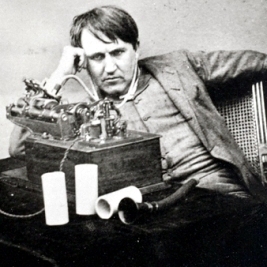 Although this may seem a rather disappointing statistic I find it encouraging. I only have to put in the effort and I’ll reach where I want to be. K. Anders Ericsson has done a fascinating study on the importance of working persistently at something in order to achieve your goals.
Although this may seem a rather disappointing statistic I find it encouraging. I only have to put in the effort and I’ll reach where I want to be. K. Anders Ericsson has done a fascinating study on the importance of working persistently at something in order to achieve your goals.
EVALUATION
Benjamin Bloom, the educationalist is famous for developing his taxonomy of learning. I was always surprised that he considered evaluation a higher level skill than creativity.
 That was until I started writing seriously. Now I realise he was right. Evaluating one’s own work is notoriously difficult. But for the indie writer it is one of the most crucial of skills and practices. I know that a modern taxonomy has placed creativity higher than evaluation but it’s my blog and for the purposes of my argument I’m sticking with the original.
That was until I started writing seriously. Now I realise he was right. Evaluating one’s own work is notoriously difficult. But for the indie writer it is one of the most crucial of skills and practices. I know that a modern taxonomy has placed creativity higher than evaluation but it’s my blog and for the purposes of my argument I’m sticking with the original.
EXTERMINATION
Sir Arthus Quiller-Couch first said, ‘Murder your darlings,’ way back in the nineteent century. The concept is so useful that writers as diverse as Fitzgerald, Faulkner, Stephen King and Sauron, Lord of the Rings, have also been quoted as saying it. Whoever says it means the same thing. 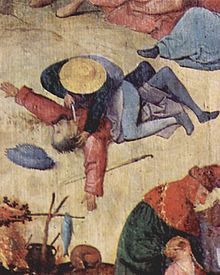
That the serious writer, after evaluating what they have written, should be most suspicious of the things he or she loves best. The poetic turn of phrase, the witty riposte in a line of dialogue, (even though the speaker would never say it), the words so beautiful that they make the reader stop…and lose the plot and not turn over the page. So, ‘Kill your darlings.’
RESURRECTION
I’ve always like the idea of the phoenix. And I’m using the term resurrection for this stage of writing. After months or years of writing, when the original spark for your idea has been long forgotten and the ardent flames of your creative phase have sunken into sullen, dying embers your book is finally published. And so, phoenix-like arises from the ashes. 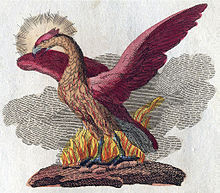
You may be heartily sick of it but your words, with luck, will delight and enthrall your readers as much as they possibly did for you.
PROJECTION
This is the final stage of writing and it takes place most often after you have finished. Because once you have published your book the unslain little darling does not die. Far from it. If you give it a little while and are receptive, it will project itself further in your imagination. 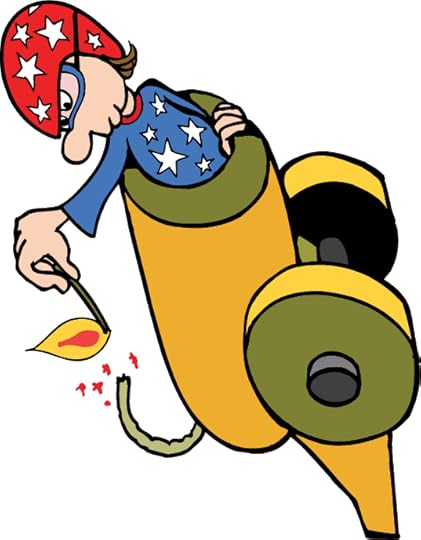
A new idea may emerge, an aspect of one character which you did not allow yourself to explore may knock on the window of your mind and say, invent a new character and allow me to exist.
Like the Worm Oroboros, this stage leads back, tail in mouth, to the very beginning.


September 30, 2013
[contact-form]
September 28, 2013
The Harrying of the North #SampleSunday #HistNov Blood of Ironside Part 7
King Malcolm had already heard much of what I had to tell. Of the meeting with the Danish fleet at York, the fire in the city and how we took the two castles and slaughtered all of the Normans in them. I did not speak of Anna’s role in the capture or, for the moment, anything at all about her.
I told them of our journey down the river towards the mouth of the Trent, of my attempt to raise the people of Lincoln to our cause and our disastrous battle with the Normans.
‘You were lucky to escape,’ Malcolm said.
‘Yes.’ I fell silent, thinking back on how that had happened. ‘If it had not been for Count Robert of Mortain I may not have done. I suspect he allowed me to escape.’
‘Robert of Mortain? William’s brother? Why would he let you escape?’
‘I don’t know.’ I shrugged. ‘He is an honourable man.’
Margaret shook her head. ‘How can a Norman be honourable?’
‘I have learnt there is honour in many men, even my enemies,’ I answered. ‘And low dishonour and treachery amongst those who claimed to be my friends.’
Malcolm raised an eyebrow.
‘I speak of Esbjorn, the brother of the Danish king,’ I said. ‘We assumed that the Danish army was led by the princes, Cnut and Olaf. We were wrong; Esbjorn is the real leader. He is a fearsome warrior. And a man of the greatest evil.’
I swallowed, thinking of how he had used Anna. I shook my head to clear my mind of it.
‘I know little of him,’ Malcolm said.
‘He betrayed us to William,’ I said. ‘That is all you need to know. And also this. If it suited his purpose he would caress you with honeyed words while readying a knife to plunge into your heart.’
‘Edgar and he were not good friends,’ Godwin said lightly.
Malcolm shot a glance of disapproval at him.
‘Esbjorn met secretly with William,’ I continued. ‘He arranged to sell me to him.’
Malcolm looked visibly shaken at hearing this. His huge head shook in disbelief.
‘So how did you escape from Esbjorn?’ he asked.
‘We wouldn’t have done without the aid of Willard the outlaw. It was he who led us to safety after the defeat at Lincoln. Then, when we found out about Esbjorn’s treachery, Willard broke into the Danish camp and helped us escape. We travelled up river and eventually came to where Cnut and his men contested the river-crossing with the Normans.’
Malcolm frowned. ‘You went to Cnut even though Esbjorn had betrayed you?’
‘Not willingly. We were caught by Danish longships and taken to him.’
Margaret gasped at this. ‘You must have been in fear of your life,’ she said.
I shook my head. ‘Not at all. I came to respect Cnut.’
Malcolm frowned at this and he shook his head in surprise.
‘Respect a Dane?’ he said. ‘I wonder if that is truly wise.’
I smiled grimly.
‘I did more than merely respect him. I saved his life in the battle of the ford.’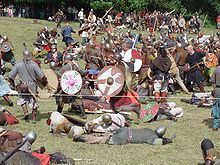
I drew out the sword Cnut had given me and handed it to Malcolm.
‘He gave me this in thanks.’
Malcolm held the sword high and examined it closely, running his eyes down the blade and marvelling at the keenness of it.
‘This is a magnificent weapon,’ he said. ‘I had heard the Northmen are great swordsmiths. It is a kingly gift.’
‘It was not made by any Viking,’ I said. ‘Cnut told me that it had been forged by Wayland the Smith.’
Margaret looked outraged at the mention of this pagan hero. Her reaction amused me and, for the first time in weeks, I felt a smile grow on my lips.
Malcolm handed back the sword, with some reluctance I noted, and asked me to continue.
‘Cnut held the Normans for many weary days,’ I said. ‘But in the end the Normans found a place to cross the river far to the west. Cnut was outflanked and had to take to his ships to escape.’
‘And what did you do?’
‘I had no wish to return to Esbjorn,’ I said. ‘We made our way north.’
‘It was then that William began to hunt you in earnest?’ Malcolm asked
I nodded.
‘We fled north and came upon a thegn called Thorfinnr. He was a good man and gave us sanctuary during the worst of the winter. But eventually William’s wolves heard rumour of our whereabouts and ravaged Thorfinnr’s villages.’
I found my hand going to my mouth at the memory.
‘They nailed Thorfinnr to the door of his hall.’
Margaret gasped and made the sign of the cross.
‘Thorfinnr was a strong man,’ I continued. ‘We prised the nails from the door and carried him to safety. His eldest daughter, Estrid, was taken by one of William’s barons. We could do nothing to save her. The younger daughter, Freya, we brought here to safety.’
**************
‘Blood of Ironside’ is the third novel in The Lost King series. All the books in the series are available on Smashwords, Kobo, Nook, Sony Reader Apple, and other devices for $3.08, £1.97 or €2.68. Please check out the individual retailer web-sites. You can buy my books on Kindle by clicking on the links below, by clicking on the covers to the right (for the UK) or through Amazon outlets in your own country.
Amazon US link is: http://t.co/X4nLHHXnQX
Amazon UK link is: http://t.co/KRNth65wNY
It is also available
My other novels, ‘Outcasts’ and ‘Artful’ are also available as e-books as are several collections of short stories.
My subscriber list gives you advance notice of my new releases and exclusive access to free stories. 
If you’d like to sign up to my subscriber list please look for the link on the sidebar to the right which says Newletter. It’s a little below the pictures of my books. It’s simple to sign up…..
Right click on the URL and open it in a new web page. This will take you straight to the sign up page. It is managed by Mailchimp and I promise I won’t pass on your details to anyone. I won’t bombard you with emails either, promise.
Alternatively, email me on martinlake dot 14 at gmail dot com and I’ll email you back with a link to sign up. (Sorry about having to code the email address but it helps stop robots, cybermen and Daleks.)
Related articles
Return to Scotland. Blood of Ironside Part 6. #SampleSunday #HistNov (martinlakewriting.wordpress.com)
The Stag at Bay. Blood of Ironside Part 5 #SampleSunday #HistNov (martinlakewriting.wordpress.com)
Blood of Ironside. Part 4. #Sample Sunday #HistNov (martinlakewriting.wordpress.com)
Blood of Ironside Part 3 #SampleSunday #HistNov (martinlakewriting.wordpress.com)
Blood of Ironside Part 2. #HistNov #Stories (martinlakewriting.wordpress.com)
Blood of Ironside (martinlakewriting.wordpress.com)



